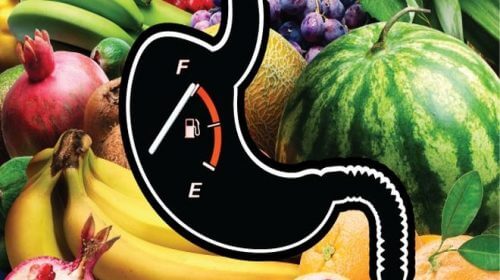Does Eating Speed Influence Your Weight?

Many people who are trying to lose weight start looking for ways to reduce the number of calories they consume. However, on numerous occasions, they only focus on the things they eat and not how they eat. Do you know how eating speed influences your weight?
Some studies show that the rate at which you eat is related to weight gain. One possible reason for this could be that eating slowly encourages you to feel full sooner. Also, eating more slowly also seems to increase the amount of water you drink and the expansion of the stomach. This affects the biological process that determines how much food a person consumes.
In this article, learn more about how eating speed affects your weight.
Satiety Hormones

The hormonal response that reports satiety is slow, which is why eating slowly helps interpret satiety at the right time.
Eating too fast prevents the proper functioning of the biological mechanism that lets you know when you’re full.
This information is regulated by a number of hormones, the main one being cholecystokinin. When you eat, a process that informs the brain that you’re already “full” starts.
By being aware of this feeling, you can stop eating foods that you don’t need because your nutritional needs are met. However, this mechanism needs time to activate. Thus, if you eat too fast, you may have eaten more food than necessary.
It has been shown that eating too fast reduces the segregation of hormones that indicate satiety.
Read: What Are the 10 Best Healthy Fats that You Shouldn’t Leave Out of Your Diet?
Studies on the relationship between eating speed and weight gain
Several studies have shown that eating more slowly could significantly reduce the amount of food you eat.
One such study was conducted among a small group of participants that included people with normal weight and people who were obese or overweight. All were given the option of eating in a relaxed manner and under conditions that enabled them to do it slowly. On another occasion, they were asked to eat fast.
The results showed that all participants consumed less food when they ate slowly and felt less hungry later compared to when they ate faster.
Read on: 5 Mental Tips to Help You Lose Weight
What can you do to reduce how fast you eat?

Avoid eating with distractions because they draw your attention away from your food and encourage you to eat faster.
All meals that are eaten in less than 20 minutes are considered too fast, regardless of what you eat.
Below, we’ll share some advice to help you eat more slowly:
- The place where you eat is important. It should be calm and invite you to eat in a relaxed way. Professionals advise eating with the television off because it can divert your attention and make you eat faster unconsciously.
- You should chew 20 to 25 times per bite. As you do so, try to identify the ingredients you’re eating.
- Use cutlery, even for pizza or sandwiches.
- Eating with people helps you to socialize and also eat more slowly.
Finally, remember that you must adopt good eating habits to stay healthy. Not only the type of foods you eat play a decisive role, but also your routines and habits, like eating speed.
All cited sources were thoroughly reviewed by our team to ensure their quality, reliability, currency, and validity. The bibliography of this article was considered reliable and of academic or scientific accuracy.
- Gómez G., Alvarado M., Obesidad y mecanismos reguladores del apetito. Rev Med Hosp Nac, 1999.
- Andrade AM., Green GW., Melanson KJ., Eating slowly led to decreases in energy intake within meals in healthy women. Journal of the Academy of Nutrition and Dietetics, 2008.
- Warrilow A., Mellor D., McKune A., Pumpa K., Dietary fat, fibre, satiation, and satiety a systematic review of acute studies. Eur J Clin Nutr, 2019. 73 (3): 333-344.
This text is provided for informational purposes only and does not replace consultation with a professional. If in doubt, consult your specialist.








